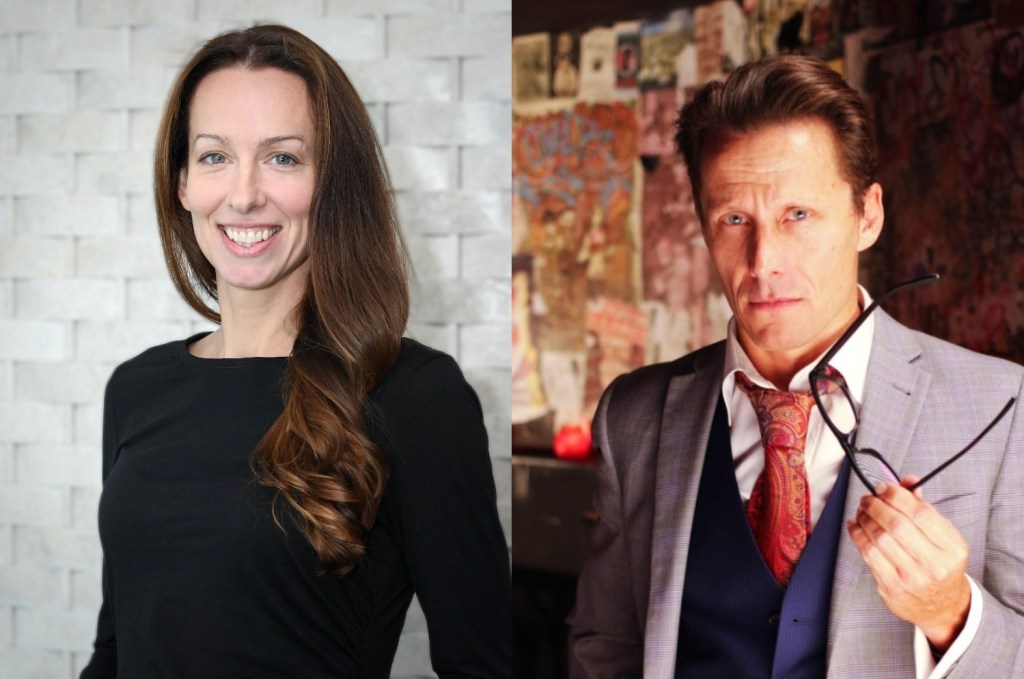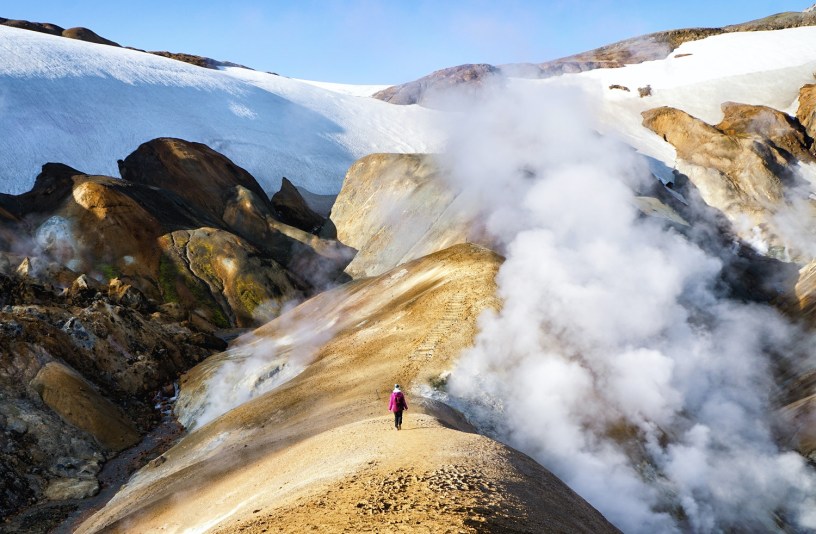Geoscience plays a critical role in some of the greatest challenges of our time: addressing climate change, building sustainable cities, mitigating natural hazards and managing water, soil, mineral and energy resources.
However, the science remains a little misunderstood. A new film festival spearheaded by director and producer Simon Heath and volcanologist Dr. Heather Handley aims to address that, and bring greater public awareness to what geoscience actually is.
The pair met working on Nature’s Fury, a documentary series for National Geographic Asia exploring natural disasters across Australasia, such as the White Island volcano eruption. They formed a good rapport given Handley’s background in science communication, and Heath’s interest in science having directed shows such as ABC’s Catalyst.
Each felt there was more scope for scientists and filmmakers to come together to unearth great stories and bring research to the public. Handley also specifically want to break down some misconceptions about geoscience and showcase its role in conversations around sustainability.
“What was the fastest, strongest, loudest shout we could make about the value of geoscience? That was through storytelling, documentary and film. That was the idea, bringing science and arts together,” Handley tells IF.

The Earth Futures Festival has the backing of UNESCO via its International Geoscience Programme, in addition to the International Union of Geological Sciences (IUGS), which has over 1 million members. It will take place in September and October online with screening and award ceremonies to also take place in Sydney, New York and Paris at UNESCO Headquarters.
Serving as patron is Professor Iain Stewart, the UNESCO Chair for Geoscience and Society, who is known for presenting BBC documentaries such as Earth: The Power of the Planet, Earth: The Climate Wars, How Earth Made Us, How To Grow A Planet, The Rise of the Continents and Planet Oil.
The festival is currently calling out for submissions on the on the topic of geoscience within the themes ‘dynamic earth’, ‘earth futures’ and ‘human connection’.
“‘Dynamic earth’ really captures the dynamic planet that we live on, and then the changes over time. It’s showing how studying things in the past can help us understand how things might change in the future, like with climate change,” Handley says.
“Then we have ‘future earth’, which is aligned with how geoscience plays a role in sustainable development. Then we have ‘human connection’, which can acknowledge human connection to the land, human stories and that more personal relationship that we have with the planet.”
Submissions can range from 90 seconds to 90 minutes, and entrants will be assessed across a number of categories: professional filmmakers and production companies; professional geoscientists; primary and high school students; tertiary students; Indigenous and First Nations people and organisations; women in geoscience and the general community.
Heath encourages filmmakers to submit and notes there is no exclusivity required. The festival happy to negotiate with those who are only interested in physical rather than online screenings due to rights issues. He imagines the total selection to stand around 70-80 films.
“For Aussie filmmakers, their work’s now going to be seen by a pretty literate audience in New York and Paris. Even for someone who’s top of the tree in Australia, it’s a great way to get their foot in the door in Europe and America,” Heath tells IF.
“Don’t be afraid to submit… There’s no cost. If you’re a six-year-old and you’ve shot something on your mum’s iPhone, put it in, if you’re Northern Pictures and you’ve got a 90-minute feature doc and you want it seen in Paris or New York, have a shot.”
Serving on the festival’s advisory board are ABC manager of documentaries Stephen Oliver; Dr. Özlem Adiyaman Lopes, a program specialist with UNESCO; Professor Chris Jackson, chair of sustainable geoscience at the University of Manchester, and business project consultant Catherine Jackson.
Awards will be presented across each of the themes and entrant categories, in addition to a People’s Choice prize.
Submissions close May 15. More info here.


